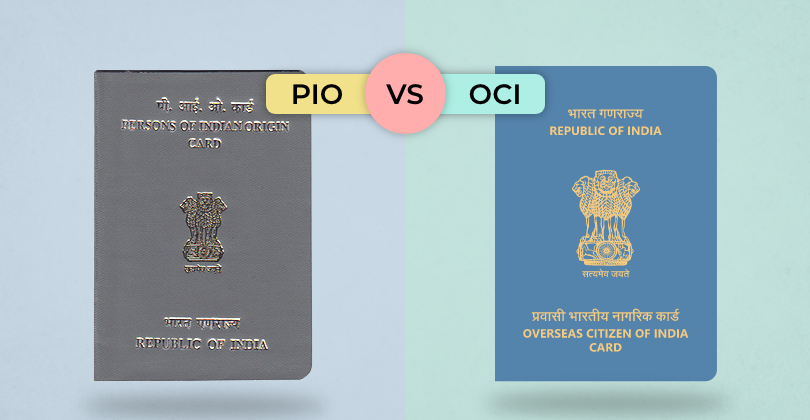Are you of Indian origin and living abroad? You've probably come across terms like PIO and OCI. These cards offer different benefits, but it can
Have you ever wondered about the guiding principles that lead to successful personal finance management? Understanding these principles can be a transformative tool for achieving financial independence and security in this ever-evolving, complex financial landscape.
Let's take you on a journey of discovery where you can grasp the essence of personal finance management and make it work for you.
5 Principles Of Managing Personal Finance
Mastering personal finance is a vital life skill that can make a significant difference in your overall financial well-being. From controlling spending to ensuring a secure future, good financial management plays a critical role. However, understanding the subject can sometimes be overwhelming.
So, to help you out, here are the top 5 principles you should consider while planning your finances:
-
Spend Less than you Earn
The essence of successful personal finance management lies in the seemingly simple concept: spending less than what you earn. This principle is a call to embrace financial discipline, the cornerstone of long-term financial health and prosperity.
What does it entail? It involves a comprehensive understanding of your financial situation -
your income, your fixed and variable expenses, and even your occasional indulgences.With this understanding, you can make conscious decisions to keep your expenses within the confines of your income, leading to a surplus. This surplus is not merely the difference between your income and expenses, but a gateway to financial opportunities.
You can channel it towards building a robust emergency fund, reducing debt, or making lucrative investments.
While this principle extols the virtues of frugality, it doesn't imply leading a Spartan lifestyle. It simply advocates making thoughtful spending decisions - choosing needs over wants, delaying gratification, and finding value in purchases.
Practising this principle helps you cultivate healthy financial habits, avoid debt burden, and steadily work towards your financial goals.
-
Budget and Plan
Budgeting is not merely an exercise in arithmetic; it's the blueprint of your financial house. A well-crafted budget can help you navigate the labyrinth of income and expenses, keeping you in control of your financial life.
To start budgeting, you need to collate your income sources and list your necessary and discretionary expenses. This bird's-eye view of your finances allows you to identify areas of extravagant spending and opportunities for savings.
Next, it's about setting financial priorities - distinguishing between what you need and what you want. This critical analysis helps you allocate your funds more strategically, ensuring your essential expenses are covered without neglecting your future financial needs.
A good budget also accounts for unexpected financial curveballs life may throw at you, such as medical emergencies or urgent car repairs. An emergency fund, integral to a sound budget, provides a financial cushion against such unpredictable events.
But remember, a budget isn't set in stone. As your income, expenses, and financial goals evolve, so should your budget. Regularly reviewing and adjusting your budget keeps it relevant and effective, making it a vital tool in your journey to financial freedom.
-
Leverage Debt Wisely
Debt is often demonised in personal finance circles, but it can be a potent tool for financial growth when handled responsibly. The secret lies in distinguishing 'good debt' from 'bad debt.'
Good debt can increase income or net worth over time, such as a loan for education, a home, or a business venture. Bad debt, on the other hand, funds are depreciating assets or discretionary expenses, offering no financial benefit.
The challenge, then, is to leverage debt wisely- borrow only when necessary and ensure your debt serves a purpose, ideally leading to long-term financial gain. It's also crucial to manage your debt effectively, keeping up with your repayments to avoid the snowballing effect of compounding interest and maintaining a healthy credit score.
That's where solutions like KreditBee come in, offering a 100% online process to avail a loan, making it a smooth, hassle-free experience. With the convenience of accessing this platform anytime, anywhere, you can meet your immediate financial needs or even capitalise on a promising investment opportunity. The key lies in making debt work for you, not against you.
-
Invest for the Long-term
Investment is more than a buzzword; it's a stepping stone towards financial independence. It involves committing your money to various financial vehicles with the expectation of a profitable return over time.
The magic of compound interest, where you earn interest on the already-earned interest, can turn small, regular investments into substantial sums over the long term.
However, investing isn't a get-rich-quick scheme. It requires a keen understanding of various investment options, from stocks and bonds to mutual funds and real estate. Each option carries its own set of risks and rewards, and investing in areas you understand is crucial.
A diversified portfolio that spreads your investments across different asset classes can mitigate risk while providing exposure to various sectors and markets.
Furthermore, patience is an investor's best friend. Investing is a long-term endeavour, and resisting the urge to react to short-term market volatility can be rewarding. Regularly reviewing your investments, aligning them with your evolving financial goals, and adjusting them based on market conditions is integral to successful investing.
-
Continual Learning
The world of personal finance is as dynamic as it is complex. Markets ebb and flow, economies shift gears, financial regulations evolve, and your own financial needs and goals change over time. That's why a commitment to continual learning is a powerful principle of personal finance.
Staying informed about the latest trends and developments enhances your understanding of the financial landscape. It equips you with the knowledge to make informed financial decisions, evaluate potential investments, and navigate financial challenges. It's about understanding complex financial concepts, recognising market patterns, and deciphering financial statements and reports.
Fortunately, learning about personal finance has never been easier. A wealth of resources is available - from online courses, webinars, blogs, and podcasts, to financial literacy programs - all aimed at improving your financial knowledge and skills. Remember, knowledge is power, and in the context of personal finance, it's the power to take control of your financial destiny.
Conclusion
Adopting these five personal finance principles is key to achieving financial freedom and prosperity. These guidelines aren't short-term solutions but lifelong habits requiring commitment and discipline. Navigating the path to financial wellness may appear daunting, but with these principles and the right resources, you can tread confidently.
One such resource is KreditBee, offering hassle-free personal loan with a swift disbursal time of 10 minutes. Whether you're at the start of your financial journey or looking to fortify your existing plans, KreditBee stands ready to provide timely financial support. So, what are you waiting for? Apply for a loan today to meet your financial needs.
AUTHOR
KreditBee As a market leader in the Fintech industry, we strive to bring you the best information to help you manage finances better. These blogs aim to make complicated monetary matters a whole lot simpler.







